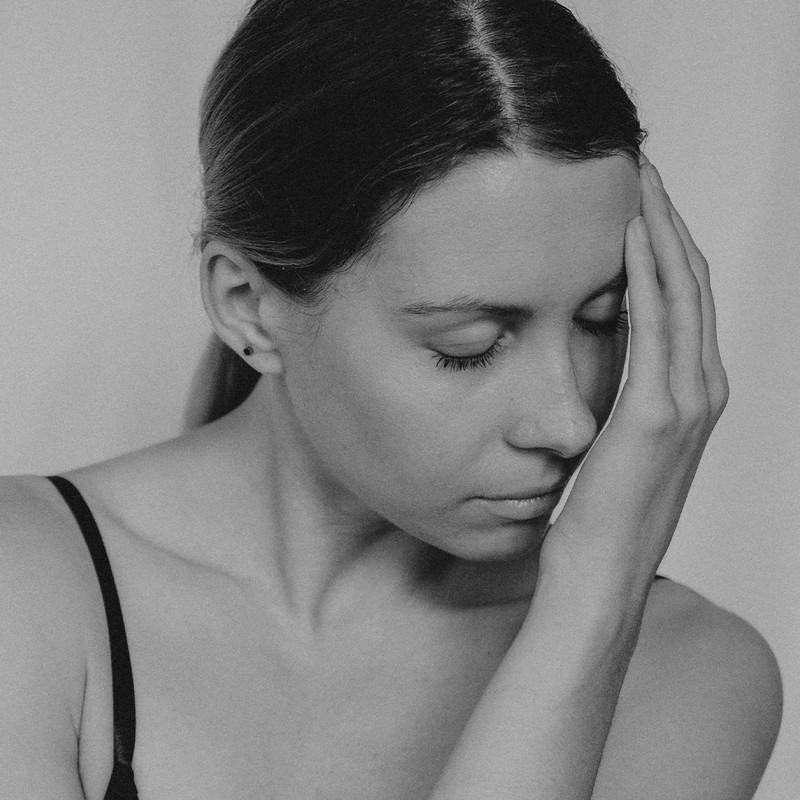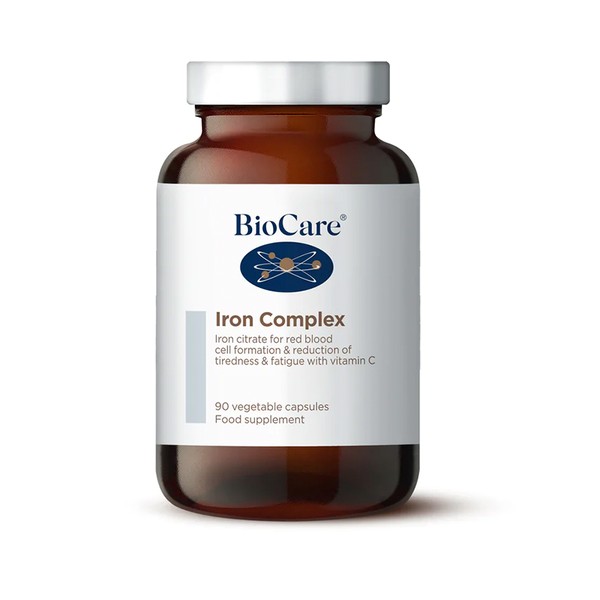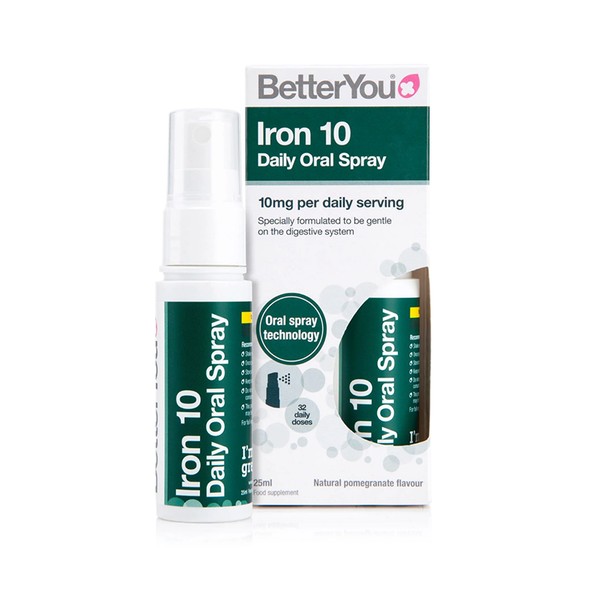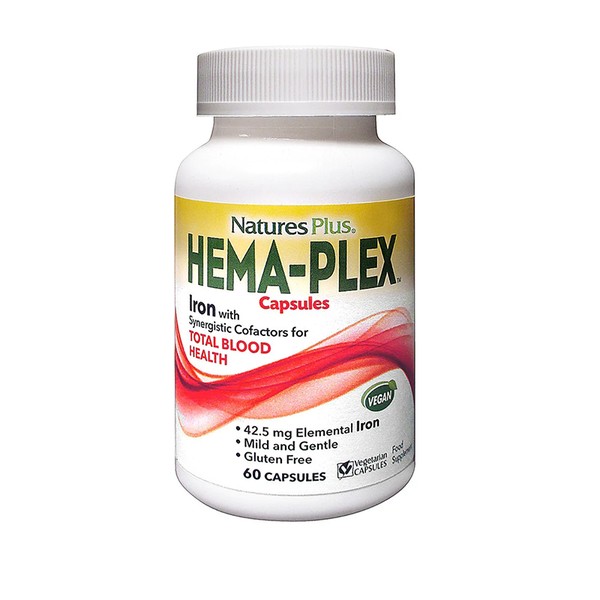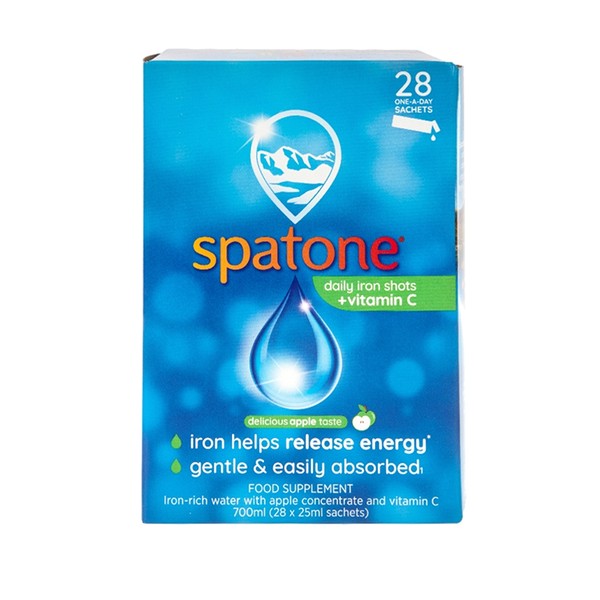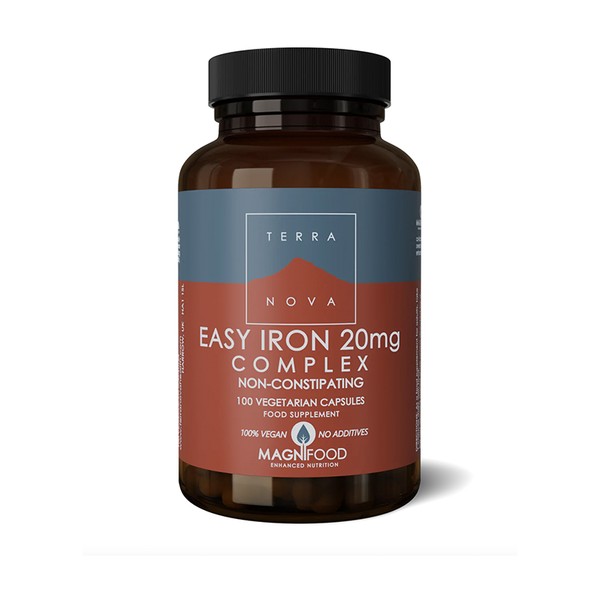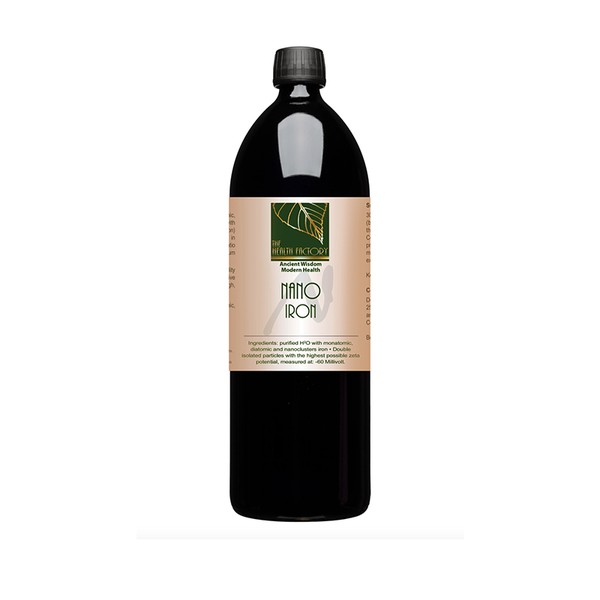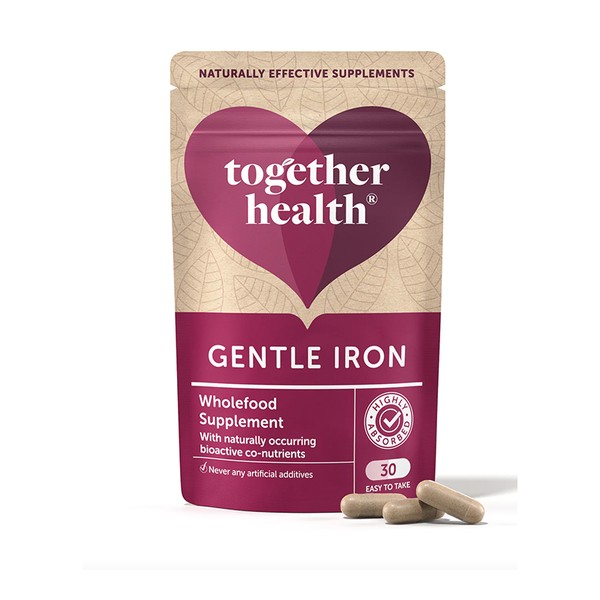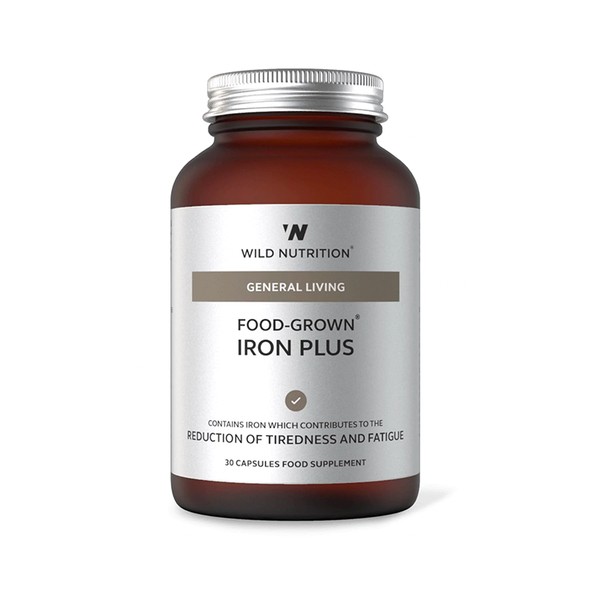What You Need To Know About Iron Deficiency
Iron Transports Oxygen Round The Body
Iron is a mineral that benefits the body in a number of ways, explains nutritional therapist Alice Mackintosh. “Iron plays a crucial role in the body as it helps us to build haemoglobin, a protein found in red blood cells that binds to oxygen in the lungs and carries it around the body. It’s also needed to make hormones, support the thyroid and immune system, as well as being vital for a baby’s growth and brain development.” Practically all aspects of health rely on a good supply of iron, continues Caroline Hind, nutritional therapist for Vitaminology. “Energy levels, cognitive function and heart health all require adequate iron levels,” she tells us. “Optimal immune function also relies on iron and it’s important for a healthy pregnancy.”
It’s A Common Deficiency
Studies suggest 29% of women across the globe are deficient in iron. “Women are more predisposed to iron deficiency than men, and if you’re having regular periods, especially if they’re heavy, have had children in the last five years, or if you’re vegan or vegetarian, it’s a good idea to get your levels checked yearly with your GP,” says Alice.
Keen Exercisers Are More At Risk
Regular aerobic workouts can deplete iron stores through sweat, physical stress and muscular damage. During high-impact activities such as running, iron is lost when red blood cells break apart due to the repetitive pounding of your feet. The cumulative effect of this – if you run regularly or if you’re training for an event – can be a deficiency. “Studies show exercising too frequently for prolonged periods or with too much intensity can deplete iron levels,” says Caroline.
Tiredness Is Often The First Symptom
“Excessive fatigue is a classic symptom of low iron levels,” Caroline continues. “Poor exercise performance, disturbed sleep and irritability are also common. Other symptoms include shortness of breath, impaired immunity, difficulty concentrating, vertigo, headaches, restless legs syndrome, hair loss and heart palpitations.” Alice agrees the effects of low iron are far-reaching: “In spite of the many symptoms, low iron can easily be missed, and many women trudge on and accept these symptoms as the norm.”
It's Worth Getting Your Levels Tested
If you think your iron levels may be low, speak to your GP and ask them to check your ferritin as well as your iron, says Alice. “Your ferritin represents the amount of stored iron in the body, so it’s a good representation of where things are at. Anything above 10ng/mL is considered normal, but many specialists agree optimal levels for menstruating women are 50ng/mL and above. If your ferritin is on the low side, it’s worth working to increase your iron intake, even if your iron blood reading is normal, especially if you have some of the symptoms of low iron.”
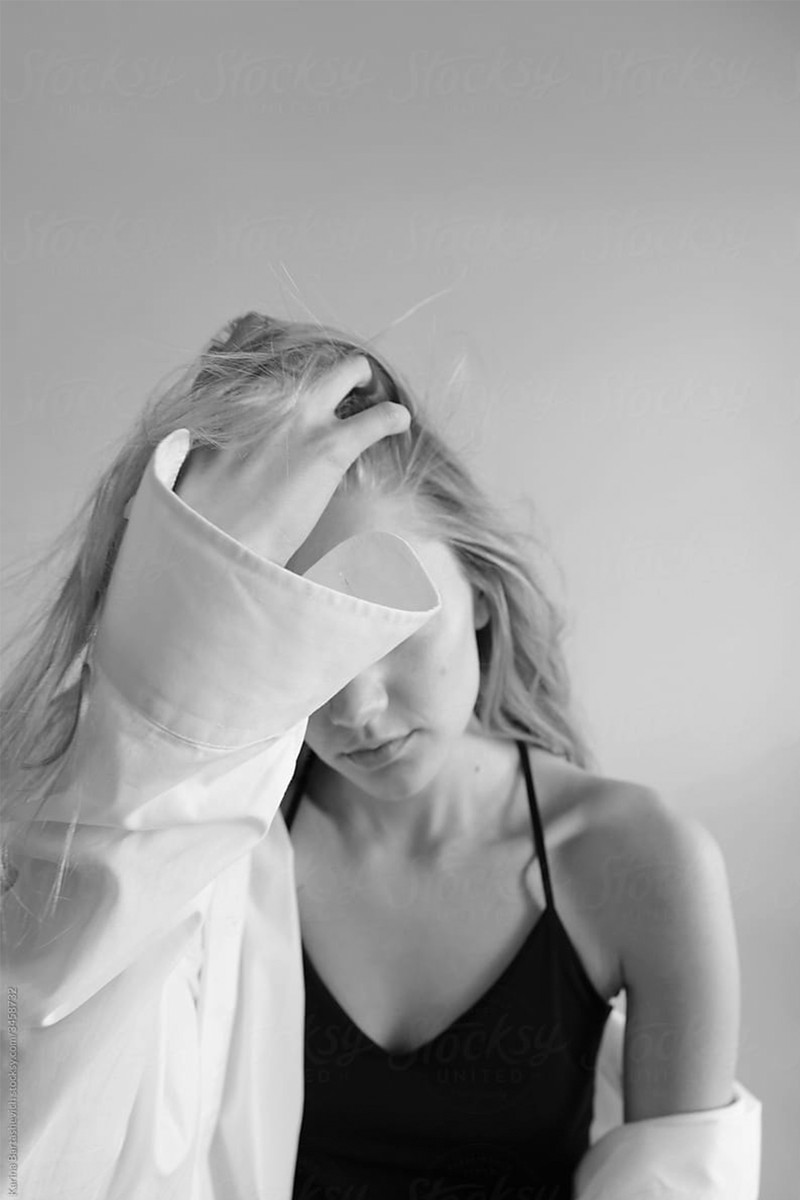
STOCKSY
Iron Has Two Main Forms
There’s haem iron, which comes from animal protein sources and is readily absorbed by the body, and non-haem iron, which is mostly found in plant-based sources. However, non-haem iron is less easily absorbed, so if you don’t eat meat, you need to make more of an effort to make sure you’re getting your daily dose. “The richest sources of haem iron include red meat – lamb, grass-fed beef, black pudding, venison and chicken leg meat – and liver. One or two servings per week of any of these is the quickest way to increase your iron levels by diet alone. Other good animal sources include poultry, fish and shellfish,” says Alice. “Non-haem sources include legumes such as beans and lentils, tahini, cashews, peas, edamame, chickpeas, tomato paste, beetroot, dark green leafy veg such as spinach and broccoli, and seeds. However, vegetarian iron is harder for the body to absorb and utilise, so you need to eat these foods often and in good quantities to make a difference – aim for two sources per day.”
Pairing Iron-Rich Foods With Vitamin C Can Help
The experts agree eating foods containing vitamin C will help the body better absorb non-haem iron. “Get into the habit of eating broccoli, tomatoes, salads and other colourful veggies or fruit at the same meal, which will increase uptake of iron in the gut,” says Alice. “Peppers, spinach, potatoes and butternut squash are all great options to enjoy with grains and legumes for an iron and vitamin C-rich meal. A squeeze of lemon juice also helps – either over food or in a glass of water.” At the same time, Alice recommends avoiding tea and coffee just after meals, as these contain a natural chemical that can bind to iron and prevent your body from absorbing it efficiently. “Dairy also interferes with iron absorption, so avoid drinking too much milk, yoghurt or cheese after meals containing iron,” she adds.
Lifestyle Habits Can Make A Difference
“Overtraining can lead to low iron stores, so make sure you’re giving your body time to recuperate in between intense exercise sessions,” Caroline advises. “If you smoke, try to give up, as smoking is linked with iron-deficiency anaemia, while cooking in cast iron pans can help increase the iron content of your food and aid optimal haemoglobin levels.”
Some Supplements Are Better Tolerated Than Others
If you’ve had your levels tested and think you could benefit from taking a supplement, do your research and invest in a quality formula, advises Alice. “Supplementing is a great way to bring up your blood levels but beware of cheaper forms such as ferrous sulphate, which can lead to stomach cramps and constipation. These are also poorly absorbed, meaning doses are often very high, which can make side effects worse. Instead, choose ‘easy iron’ formulas, such as ferrous gluconate or bisglycinate. These forms of iron have much better bio-availability and don’t cause gastro-intestinal symptoms.” For an added boost, look for formulas that also contain vitamin C, finishes Caroline. “If you don’t enjoy taking capsules, you could also try a liquid iron supplement. Many are made with fruit extracts, which makes them more palatable.”
For more information visit EquiLondon.com & Vitaminology.co.
Give Your Iron Levels A Boost With Our Pick Of The Best Supplements…
DISCLAIMER: Features published by SheerLuxe are not intended to treat, diagnose, cure or prevent any disease. Always seek the advice of your GP or another qualified healthcare provider for any questions you have regarding a medical condition, and before undertaking any diet, exercise or other health-related programme.
DISCLAIMER: We endeavour to always credit the correct original source of every image we use. If you think a credit may be incorrect, please contact us at info@sheerluxe.com.
